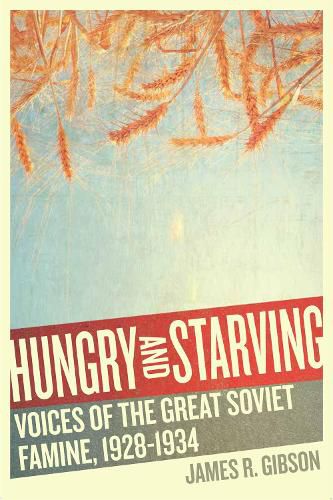Readings Newsletter
Become a Readings Member to make your shopping experience even easier.
Sign in or sign up for free!
You’re not far away from qualifying for FREE standard shipping within Australia
You’ve qualified for FREE standard shipping within Australia
The cart is loading…






In the wake of Vladimir Lenin's death in 1924, various protagonists grappled to become his successor, but it was not until 1928 that Joseph Stalin emerged as leader of the Russian Marxists' Bolshevik wing. Surrounded by an increasingly hostile capitalist world, Stalin reasoned that Soviet Russia had to industrialize in order to survive and prosper. But domestic capital was scarce, so the country's minerals, timber, and grain were sold abroad for hard currency for funding the development of heavy industry.
Claiming total control of agricultural management and production, Stalin implemented the collectivization of farming, consolidating small peasant holdings into large collective farms and controlling their output. The program was economically successful, but it came at a high social cost as the state encountered intense resistance, and between 1928 and 1934 collectivization led to the deaths of at least ten million people from starvation and associated diseases. Hungry and Starving elicits the voices of both the culprits and the victims at the centre of this horrific process. Through primary accounts of collectivization as well as the eyewitness observations of ambassadors, reporters, tourists, fellow travellers, Russian emigres, tsarist officials, aristocrats, scientists, and technical specialists, James Gibson engages the crucial notions and actors in the academic discourse of the period. He finds that the famine lasted longer than is commonly supposed, that it took place on a national rather than a regional scale, and that while the famine was entirely man-made - the result of the ruthless manner in which collectivization was executed and enforced - it was neither deliberate nor ethnically motivated, given that it was not in the Soviet state's economic or political interest to engage in genocide.
Highlighting the experiences of life and death under Stalin's ruthless regime, Hungry and Starving offers a broader understanding of the Great Soviet Famine.
$9.00 standard shipping within Australia
FREE standard shipping within Australia for orders over $100.00
Express & International shipping calculated at checkout
In the wake of Vladimir Lenin's death in 1924, various protagonists grappled to become his successor, but it was not until 1928 that Joseph Stalin emerged as leader of the Russian Marxists' Bolshevik wing. Surrounded by an increasingly hostile capitalist world, Stalin reasoned that Soviet Russia had to industrialize in order to survive and prosper. But domestic capital was scarce, so the country's minerals, timber, and grain were sold abroad for hard currency for funding the development of heavy industry.
Claiming total control of agricultural management and production, Stalin implemented the collectivization of farming, consolidating small peasant holdings into large collective farms and controlling their output. The program was economically successful, but it came at a high social cost as the state encountered intense resistance, and between 1928 and 1934 collectivization led to the deaths of at least ten million people from starvation and associated diseases. Hungry and Starving elicits the voices of both the culprits and the victims at the centre of this horrific process. Through primary accounts of collectivization as well as the eyewitness observations of ambassadors, reporters, tourists, fellow travellers, Russian emigres, tsarist officials, aristocrats, scientists, and technical specialists, James Gibson engages the crucial notions and actors in the academic discourse of the period. He finds that the famine lasted longer than is commonly supposed, that it took place on a national rather than a regional scale, and that while the famine was entirely man-made - the result of the ruthless manner in which collectivization was executed and enforced - it was neither deliberate nor ethnically motivated, given that it was not in the Soviet state's economic or political interest to engage in genocide.
Highlighting the experiences of life and death under Stalin's ruthless regime, Hungry and Starving offers a broader understanding of the Great Soviet Famine.